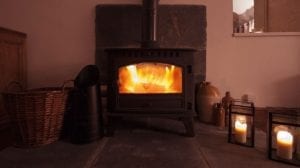With the current pandemic, many homeowners are taking extra precautions to make sure their home is more rigorously cleaned and disinfected. A few easy steps include washing hands often and disinfecting regularly touched surfaces. But what about the air quality and air filter in your home? Can that help protect against COVID-19 and similar viruses? Here is what you need to know about different air filtration systems and how furnace repair in San Jose, CA might affect your chances of getting ill.
High-Efficiency Air Filters
Hospitals are usually the primary purchasers of high-efficiency particular air (HEPA) filters. These are designed to trap 99.7% of particulates including dust, allergens, dander, and mold. They can capture particles as small as 2 microns. Unfortunately, most viruses are smaller. While some of the virus particles might get caught if they hit the filter directly, most will likely pass right by the filter. That is why HEPA filters cannot be the sole means of cleaning and sanitizing the air.
Electronic Air Filters
These use two different means of filtration. First air passes through a prefilter that traps most particulates traveling in the air. If there are smaller contaminants that pass through the prefilter, they get charged by the electronic filter and stuck by oppositely charged plates. And some electronic filters have a third portion that creates ozone which attaches oxygen molecules to contaminants and eliminates them. When exposure amount and length of time are sufficient, ozone-generating products can kill some coronaviruses, but ozone has not been definitively tested against COVID-19.
UV Light Filters
Some air filtration systems apply UV lights in sanitizing ducting or equipment evaporator coils. UV lights are very good at killing viruses on a stationary surface. Unfortunately, the virus must be exposed to the light at a particular distance and for a long enough period to damage the DNA sequence. Viruses in the air would more likely travel at 400 to 450 cubic feet per minute, giving the UV light little time to have an effect. Also, UV lights are damaging for people exposed to the harmful rays.

Air Scrubbers
These turn water and oxygen molecules into power oxidizers that get released into the air. Then the oxidizers attach to contaminants and kill them within six hours. Like other products, air scrubbers have not been tested specifically against COVID-19, but it does present more opportunities to send out VOC-killing molecules instead of waiting for the HVAC system to pull them through the filters.
Can Air Filtration Protect Against COVID-19?
Unfortunately, standard air filtration will not be much help in capturing most viruses. And these systems do not clean your nose, mouth, or lungs. And those areas are typically where large droplets containing virus end up infecting most individuals. That is why regular hand washing and personal protective equipment while out in public is recommended by the CDC and other health institutions. Those methods help prevent the virus from entering those vulnerable areas.
If you have more questions about air filters or furnace repair in San Jose, CA contact Pelle Heating and Air Conditioning. While these systems will not do much to protect you against COVID-19, it is still important to keep your HVAC system in top condition to improve air quality.
The post Will Air Filters Protect Against Viruses? appeared first on Pelle Heating & Air Conditioning.

